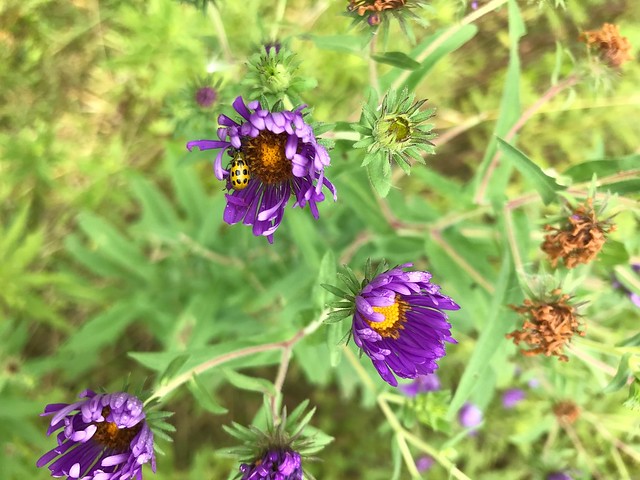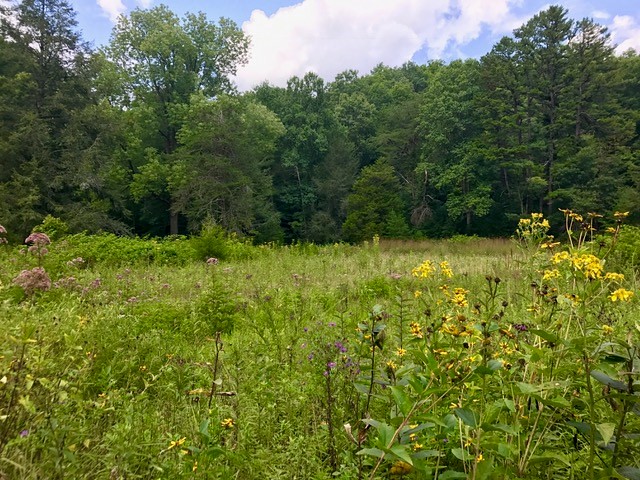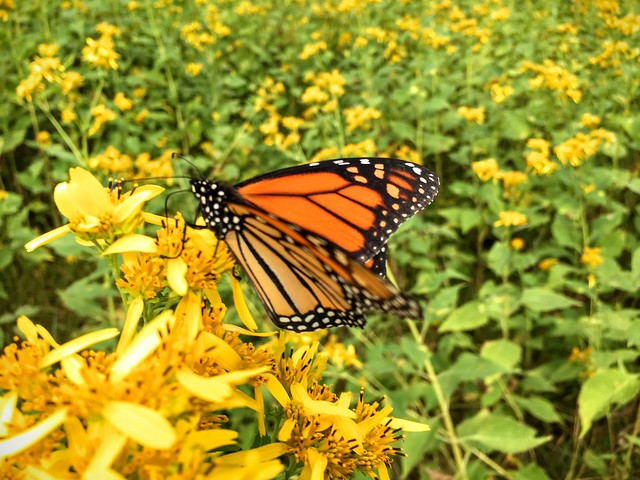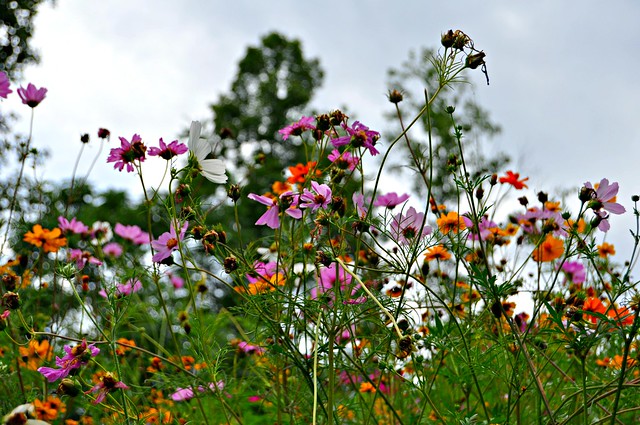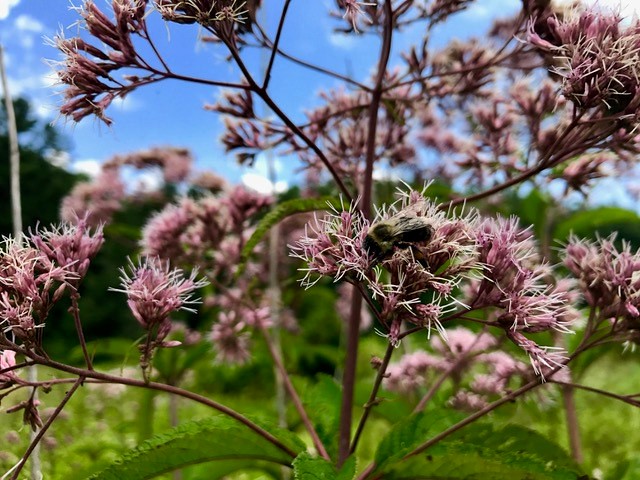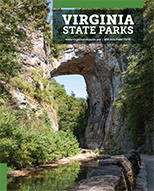Read Our Blogs
Learn why Virginia State Parks is letting the grass bee
Shared by Rachel Blevins, as Guest Blogger.
For decades, Virginia State Parks have been known to have endless recreational activities, camping amenities, and a manicured look. Well, that is changing as State Parks across Virginia are beginning to get a makeover, and this so-called makeover is often referred to as the up and coming term, “No Mow Zone.”
WHAT'S ALL THE HYPE?
A no mow zone is a selected area in the park which it is just left alone. At one point in time, park staff tended to that area to give it that signature Virginia State Parks' manicured look. Now, those selected areas will be left alone, allowing nature to transform what was once a bland grassy area into a pollinator’s paradise.
Letting the grassy fields grow is an important part of natural resource management.
No mow zones are areas where pollinator habitat is allowed to grow naturally
This selected area at Hungry Mother State Park that has been deemed a No Mow Zone
Natural Habit results in native plants and wildflowers, which also attract this
THE PERKS OF NO MOW ZONES
Happy Pollinators
By allowing areas to grow on their own, it’s returning to its natural habitat. As a result, native plants and wildflowers thrive. No mow zones quickly become pristine habitats for pollinators. Butterflies, bees, and hummingbirds galore will flourish in these areas. Not only does it attract pollinators, but provides food and shelter year-round for both small and large game like deer, turkey, rabbits, songbirds and much more.
No mow zones have the tendency to invite woody species and invasive plants that can potentially overtake an area. This will leave very little growing room for a pollinator’s favorite wildflowers. With proper monitoring and management techniques by our resource specialists, steps can be taken to maintain a now mow zone as a native and diverse habitat.
Grassy Areas
Let Them Bee
Butterflies, bees and hummingbirds love this natural habitat at Virginia State Parks
A happy bee visiting the wanted Joe-Pye weed
Happy Park Staff
By simply implanting no mow zones in Virginia State Parks the affects will not only be beneficial now, but for years to come. Mowing less not only makes for happy pollinators but for happy park staff.
Our maintenance staff at the parks are hard workers so these “no mow zones” is music to their ears. When less time is spent on mowing throughout the park, more time is given to make additional park improvements that have been thrown on the back burner.
No mow zones not only equate to less time spent mowing but also less money spent on mowing – both in gas and labor. Not only is this environmentally friendly, but improvements in the park can be achieved. Which leads to the next perk…happy park guests.
Happy Park Guests
Letting a grassy area grow up gives way to endless recreational opportunities. Whether it’s outdoor education, photography, or simply a serene place to truly get in touch with nature.
By spending time around a pollinator habitat, you’ll experience nature at its finest. The beauty of the wildflowers in bloom, the unique insects that inhabit the area, and even discover an array of bird species that flourish in the no mow zones.
So at the end of the day, no mow zones make happy pollinators, happy park staff, and also importantly, happy park guests.
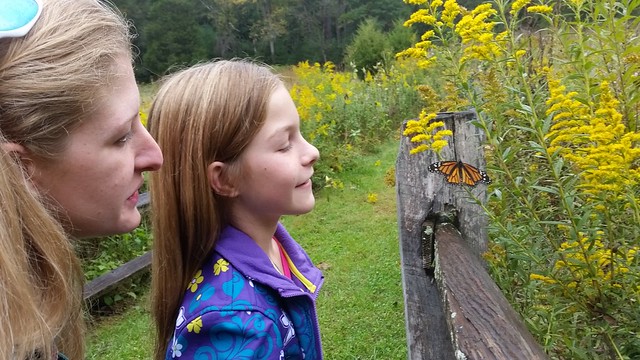
Nature is a great place to learn as a family
NO MOW ZONES SPARK A PROVOKING THOUGHT
Why are pollinators relative to us?
Sure, everyone loves a field full of wildflowers with the sound of bees buzzing and butterflies fluttering. Those are the true sights and sounds of nature. But did you know that pollinators have an impact on our lives almost daily? It is said that one out of every three bites is because of a pollinator. Fruits, coffee, cotton for our t-shirts, sugar, grass for cows, lumber for building, and even chocolate are all possible because of pollinators. The bees and butterflies are our most famous pollinators but let’s not forget our birds, flies, moths, beetles, ants, and other tiny insects that are often forgotten.
So what I ask of park guests is to go out and enjoy these no mow zones. Enjoy the colorful areas gleaming with wildflowers. But take a moment and observe all of the different pollinators thriving in the area.
Think about your last meal – was it because of a pollinator? Imagine a trip to the grocery store without our pollinating friends. But most importantly, as you explore this no mow zone, thank a pollinator.
If you have read the article and have a question, please email nancy.heltman@dcr.virginia.gov.
Search for blogs
By Park
Categories
Cabins
Camping
Fishing
History and Culture
Other
Programs and Events
Trails
Volunteers
Water Fun
Archive
2025
2024
2023
2022
2021
2020
2019
2018
2017
2016
2015
2014
2012

